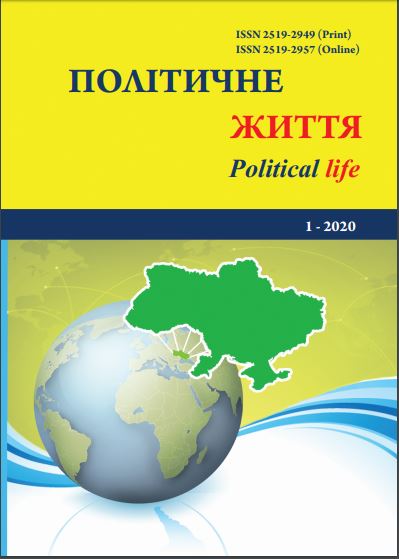Nuclear Export Controls: Duplication of Effort.
DOI:
https://doi.org/10.31558/2519-2949.2020.1.16Keywords:
Zangger Committee, Nuclear Suppliers Group, export control, nonproliferationAbstract
There is an understanding as well as clear evidence that the acquisition of peaceful nuclear technology can be an impetus for launching an arms program (India, Iraq, Israel, Libya, North Korea, and Pakistan). At the same time, Article IV of the NPT provides for the right of States to develop peaceful nuclear programs. This means that every non-nuclear-weapon state has the inalienable right to be involved in the production and trade in the nuclear field. There are proliferation risks associated with nuclear trade that may ultimately turn against the exporting country itself. That is why there are currently two main mechanisms that set trends for international transfers in the nuclear industry: the Zangger Committee (ZAC) and the Nuclear Suppliers Group (NSG). On the one hand, it may seem that the NSG has tighter controls as it covers all non-nuclear-weapon states that are under the IAEA comprehensive safeguards agreements, regardless of NPT membership, while the ZAC does not question the NPT member states. At the same time, the NSG cooperates with India, which has only an item-specific agreement with the IAEA. The Group also authorizes transfers if they are necessary for the safe operation of existing facilities. Final decisions on transfers are still at the discretion of the states themselves, since export control mechanisms are not legally binding unless they are implemented in the national law. Unfortunately, the existing nuclear non-proliferation system provides for duplication of functions among two institutions that control the export of nuclear and dual-use items. The two clubs refuse to enter into a formal relationship with each other despite the already existing mechanism of information exchange between them and the fact that the majority of members of both groups also coincide. This article shows, including the case study, that these institutional elements are not sufficiently effective and are not able to cope with current challenges.
References
Anthony, I., Ahlstrom, C., Fedchenko, V. Reforming nuclear export controls: The future of the nuclear suppliers group Oxford; New York: Oxford University Press, 2007. 136 p.
Berndorfer, T. Nuclear commerce. [electronic resource]: Its control regime and the non-proliferation treaty. Hamburg: Diplomica Verlag, 2009. 146 p.
Permanent Mission of Ukraine to the International Organizations in Vienna. About Zangger Committee. URL: http://vienna.mfa.gov.ua/en/ukraine-io/zangger-commitee/about. (Access date: 10.01.2020).
NTI. Zangger Committee (ZAC). URL: http://www.nti.org/learn/treaties-and-regimes/zangger-committee-zac/ (Access date: 10.01.2020).
Jones, S. The multilateral export control regimes. In Knopf, & W. Jeffrey (Eds.), International cooperation on WMD nonproliferation (pp. 23-45). Athens, GA: University of Georgia Press, 2016.
IAEA. INFCIRC/209. Vienna, Austria: The International Atomic Energy Agency, 1974.
IAEA. INFCIRC/209/rev.3. Vienna, Austria: The International Atomic Energy Agency, 2014.
Abbasi, R. Pakistan and the Nuclear Suppliers Group. URL: http://www.e-ir.info/2017/01/11/pakistan-and-the-nuclear-suppliers-group-nsg/ (Access date: 12.01.2020).
Bano, S. India and Nuclear Suppliers Group (NSG) membership. Global Change, Peace & Security, 27(2), 2015, p. 123-137. doi:10.1080/14781158.2015.998992
Sharma, L., Pandey, A. Should India be a member of the NSG? International Policy Digest, 3(6), 2016, p. 106-108.
NTI. Nuclear Suppliers Group (NSG). URL: http://www.nti.org/learn/treaties-and-regimes/nuclear-suppliers-group-nsg/(Access date: 12.01.2020).
IAEA. More on safeguards agreements. URL: https://www.iaea.org/topics/safeguards-legal-framework/More-on-safeguards-agreements (Access date: 08.01.2020).
UNODA. Treaty on the Non-proliferation of Nuclear Weapons. URL: http://disarmament.un.org/treaties/t/npt (Access date: 05.01.2020).

